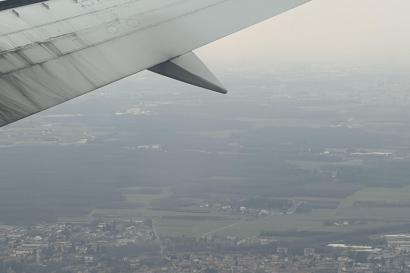Shopping in Europe vs. the U.S.
One of the biggest differences when transitioning from the U.S. to Milan was the shopping experience. In Europe, stores are more specialized. You won’t find giant retailers like Walmart or Target. Running errands often requires multiple stops—one for groceries, one for home goods, another for electronics, etc.
As an introvert, I appreciated the customer service style in Europe. Employees are there if you need help, but they don’t bombard you with promotions or hover. Coming from a retail background myself, this was a refreshing change, though it did mean I had to be more self-sufficient in stores. However, if you do want help this means you’ll have to track down an employee.
Budgeting Tips for Life Abroad
1. Expect High Initial Expenses
Don’t underestimate how much you’ll spend in the first two weeks. Beyond eating out and going on outings, you’ll also need to rebuild your living space. Think personal care items, hangers, spices, cleaning supplies—things you don’t necessarily bring with you, but definitely need. It adds up quickly.
2. Make Smart Shopping Decisions
Before arriving, I made a list of specific things I wanted to buy in Europe that I either couldn’t find in the U.S. or that were worth buying abroad. I avoided spending money on things available back home, like fast fashion or chain store snacks, because I wanted to prioritize unique or location-specific purchases.
For example, I’ve been on the hunt for a new signature scent. Rather than going to Sephora, I explored small, local perfumeries in Italy and other places I traveled. It was more personal and often more affordable. I also wanted a great pair of brown and black heeled boots. I spent weeks browsing local shops and markets until I found exactly what I wanted.
3. Avoid Impulse Buys
It’s tempting to buy things right away when they catch your eye, but waiting often pays off. I found that most things I initially wanted weren’t really necessary, and the items I waited on were the ones I ended up loving the most. Always think about what you already have, and try to avoid buying duplicates.
4. Plan Travel Around Your Budget
I also made a list of places I wanted to travel to based on the budget I had. It’s easy to get carried away, especially when other students or friends are planning spontaneous trips. Planning ahead helped me prioritize and stretch my budget further.
5. Don’t Forget Souvenirs
Let’s be real, your family and close friends will expect souvenirs. I put this off until my last week and ended up scrambling to find the right gifts. If you want to avoid the stress, plan for this earlier in your trip and pick things up as you go.
My Milan Store Guide
Here are some of the key stores I relied on during my time in Milan:
Grocery Stores
- Conad – Smaller with decent bakery and deli options. Good for quick stops.
- Esselunga – Broader selection, great for packaged goods like pasta, coffee, and sauce. Often more budget-friendly overall.
Drugstore / Personal Care
- DM – Affordable and wide range of personal care products.
- Tigotà – Similar to DM, with everything from toiletries to cleaning supplies.
Electronics & More
- MediaWorld – Think of it like Best Buy, but with added options like kitchenware, hair tools, and fitness gear along with tech products from Apple, Samsung, etc.
Final Thoughts:
Living abroad is a great opportunity to be intentional with how you spend, whether it’s on food, fashion, or travel. Planning ahead and staying mindful makes the experience smoother, more enjoyable, and ultimately more meaningful.

Daisy Ruiz
Hi, I'm Daisy! I'm a first-generation Latina studying Communication and Media as a junior at the University of Michigan. I love thrifting, exploring new coffee shops, and going on spontaneous side quests!








